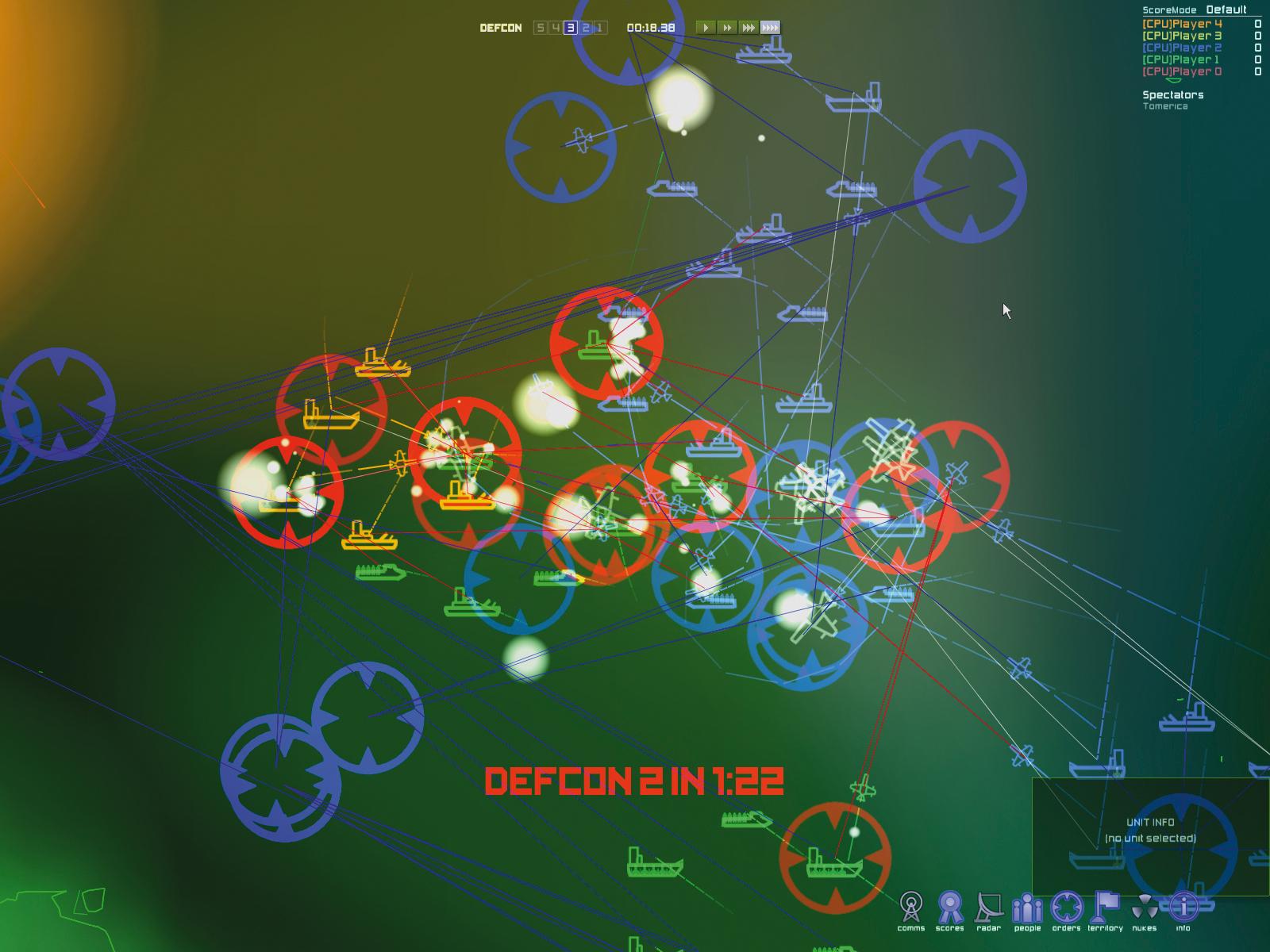GamesRadar+ Verdict
Pros
- +
Killing millions of civilians
- +
Taking down incoming nukes
- +
Watching your nukes explode
Cons
- -
Tiny pangs of guilt
- -
Being picked on by others
- -
Having to learn so much
Why you can trust GamesRadar+
Remember WarGames? That '80s film where Matthew Broderick plays a school kid who inadvertently hacks into the US military's defense mainframe and plays a game of Global Thermonuclear War? DEFCON is that game in all but name: a world map in glowing outline, showers of vector-graphics warheads arcing between superpowers, and the silhouettes of subs creeping ominously across international waters.
The war plays out in silence but for a ghostly soundtrack of unsettlingly off-key tones, coughing and soft sobbing, and a low rumble each time a nuclear ICBM stains the map with a white disc of lethal radiation. Popup text announces the millions dead. It's slow, dark and sinister.
The point of WarGames was that nuclear war is unwinnable, that every aggressor incurs unacceptable losses. The point of DEFCON is to do it anyway, and inflict even less acceptable losses on your friends (online or LAN) or the AI (an acceptable punching bag for training, but no more).
A game with more than two players quickly becomes an extinction-level event for the human race. The winner is the player who causes the most civilian casualties and incurs least himself, with the emphasis placed firmly on the former: two points for every million killed, minus one for every million lost.
In DEFCON's artistically licensed rebalancing, the modern world is dominated by six equal superpowers: North America, South America, Europe, Africa, Russia and Asia. The conflict escalates through the five DEFCON stages.
More info
| Genre | Strategy |
| Description | A global game of nuclear warfare where the aim is to kill as many 'enemy' civilians as possible. |
| Platform | "PC" |
| US censor rating | "Rating Pending" |
| UK censor rating | "" |
| Release date | 1 January 1970 (US), 1 January 1970 (UK) |



